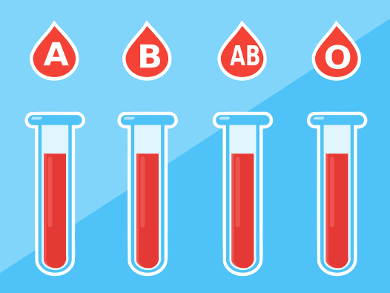The blood type determines whether the blood of the donor and the recipient match in a blood transfusion. If the types do not match, the foreign blood cells are identified by antibodies and destroyed by the immune system. The most well-known of these blood classifications is the AB0 system. These blood types are determined by carbohydrate molecules that sit on the surface of the red blood cells. Because there are no antibodies against group 0, this blood is considered a universal donor blood, suitable for all recipients. It is, therefore, particularly urgently needed in the case of severe emergencies and disasters.
Stephen Withers, University of British Columbia, Vancouver, Canada, and colleagues have found an enzyme in gut bacteria that can convert blood of other blood groups to the blood group 0. The mucus layer of our intestinal wall contains numerous glycoproteins, so-called mucins. Among these proteins are some covered with sugars that are similar to the blood antigens A and B. Because many bacteria in the intestine can attach to the sugar molecules on these glycoproteins and use them as food, they possess appropriate enzymes to convert the sugars.
In these bacteria, the team found a family of enzymes that can selectively target antigens A and B, as tests with human blood showed. According to the scientists, they are 30 times more effective than previously known enzymes of this type. Theoretically, these enzymes could be used to convert donor blood with A- or B-type antigens into the blood group 0. Of course, clinical tests are needed to make sure that this method has no harmful side effects. However, according to the researchers, the approach is very promising.
Also of Interest
- Clever Picture: Blood Types and Carbohydrate Chemistry,
ChemViews Mag. 2015.
https://doi.org/10.1002/chemv.201500099
Simple carbohydrates play an important part in the AB0 blood types



